Helping out a friend in need can be very, very rewarding, even if it technically “costs” you something. However it can at times be hard to actually say no when the requests for assistance from your friends keep adding up. After all, some folks just don’t know when enough is enough.
A man shared his story of how hosting a friend turned into a nightmare when she kept making new demands. We reached out to him via private message and will update the article when he gets back to us.
Hosing a friend who needs it is a normal, nice thing to do

Image credits: SHVETS production / Pexels (not the actual photo)
But one couple ended up stuck with a friend who moved in then started making new demands

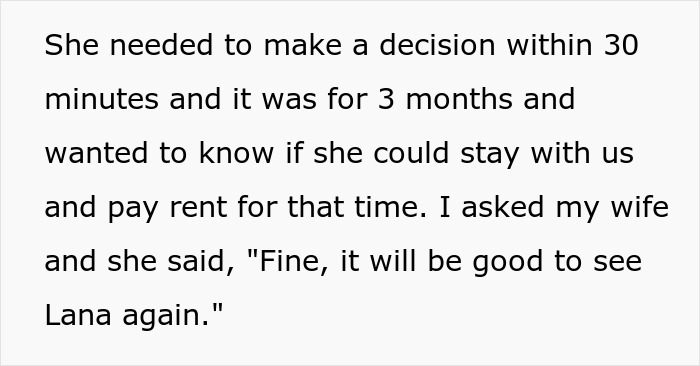
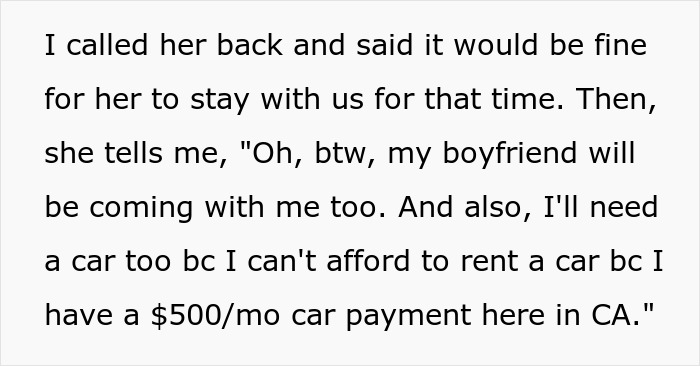


Image credits: Mikhail Nilov / Pexels (not the actual photo)

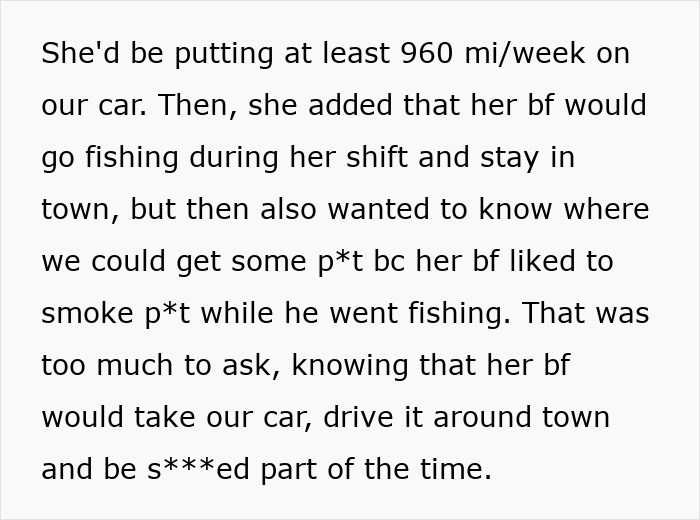
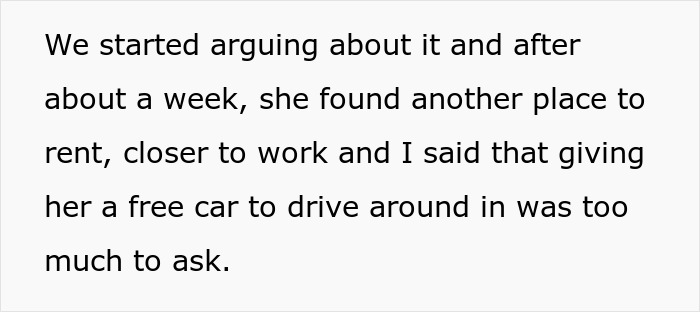

Image credits: Hanna Saad / Pexels (not the actual photo)


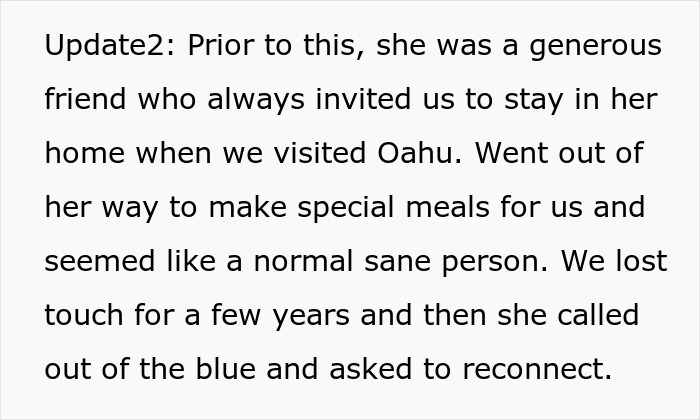
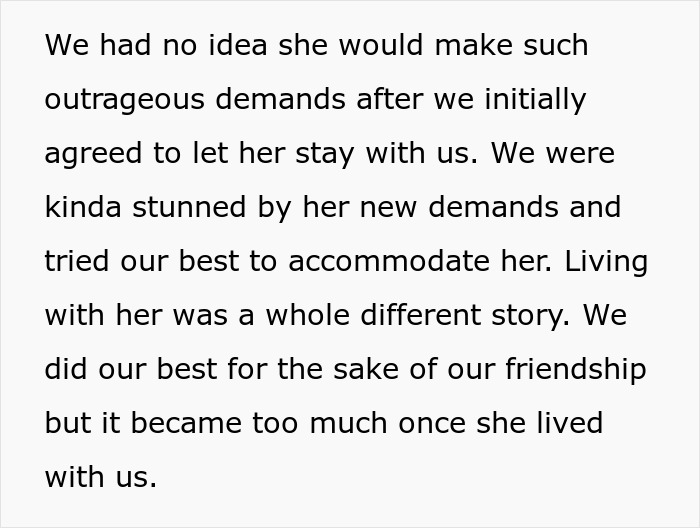
Image credits: Neo1881

Image credits: Thomas Boehi / Pexels (not the actual photo)
A friend in need is a friend indeed
Friendship thrives on kindness, trust, and support, but those same attributes can also make it easy for friends to overextend when asking for favors. Unlike professional or more superficial relationships, where expectations and roles are clearly defined, friendship has a tendency to blur the division between kindness and duty. That blurring can lead to a dynamic in which one person feels obligated to give more than they can possibly manage, all for the purpose of being a “good friend.”
Part of the problem is that friends often assume a level of informality that bypasses the usual politeness filters. Instead of carefully weighing whether their request is fair, they might think, “We’re close, so it’s fine to ask.” Borrowing money, asking for a ride, needing last-minute help with moving, or leaning heavily on emotional support, all of these are normal things friends do for one another. But when the demands are piling up or one-way, what had begun as an act of friendship can begin to feel like an imposition.
There is also the implicit threat of spoiling the friendship. When a friend asks something of you, it’s easy to feel that “no” weighs heavily, even if there is good reason to refuse. People are afraid of being labeled as selfish or uncooperative, so they do too much for fear of creating tension. That makes it easy for the dynamic to tip into an imbalance where one of the friends is over depending on the other without a sense of the weight they are placing upon them.

Image credits: Antoni Shkraba Studio / Pexels (not the actual photo)
Sometimes people assume
Then, of course, there’s the shared priorities presumption. Because friends think they’re close, they presume their needs should be priority to the other person. But everyone has different schedules, obligations, and limits. Something that’s a trivial request to one can be a monumental disruption to another. Without open communication, that mismatch can easily build resentment in no time.
The hard part is that most overstepping is not malicious. It simply comes from complacency, friends feel so at ease with each other that they forget to ask if their requests cross a line. That’s why boundaries are necessary, even in friendships with affection. Clear boundaries don’t equal distance, they equal respect. They ensure that if someone agrees to something, it’s genuine and not a grudging compromise out of obligation.
Mutuality and perception are the foundations of healthy friendship. Favor-doing can solidify bonds, but only when each recognizes the exchange as voluntary and on a quid-pro-quo basis. When one friend starts taking without giving, or assumes access to time, resources, or emotional energy without asking, it dismantles the very foundation upon which the relationship is constructed.
Fundamentally, overstepping happens because friendship is built on just trust, but mutual trust. Just as you trust a friend to be there when you call, you trust them too to honor your boundaries. When that balance remains, favors become acts of love. When it’s forgotten, they become burdens that destroy the closeness that made the friendship valuable in the first place.
He gave some more details in the comments



Readers were surprised he sort of agreed to everything


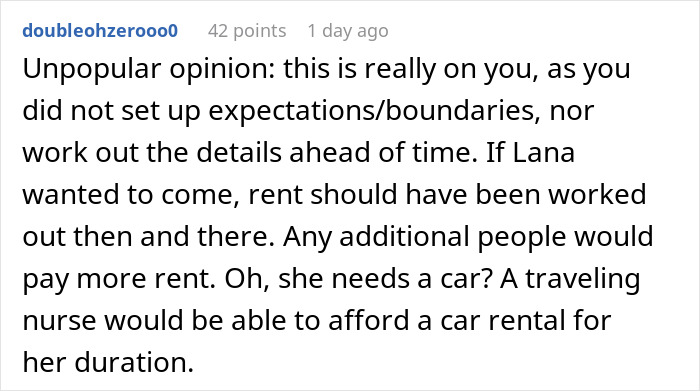



















 Follow Us
Follow Us





